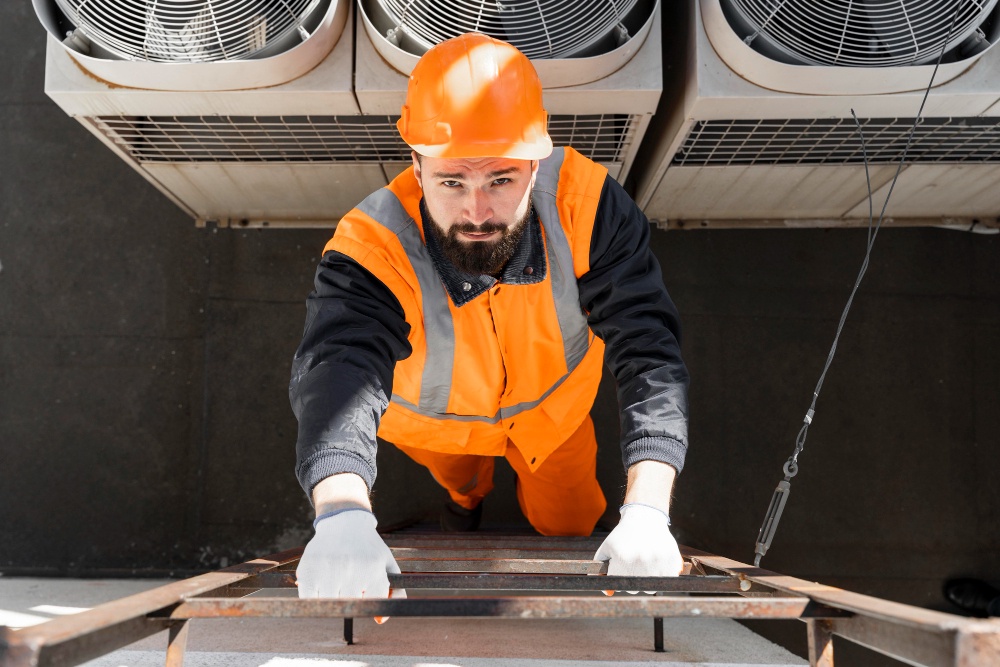In contemporary living, Heating, Ventilation, and Air Conditioning (HVAC) systems have become integral to both residential and commercial spaces. These systems play a crucial role in ensuring optimal comfort by regulating indoor temperatures. As the impact of HVAC systems on the environment becomes more pronounced, enhancing efficiency has become a top priority. Consulting with a skilled HVAC consultant is key to identifying the most suitable system for your space.

Advanced HVAC Systems:
HVAC, encompassing Heating, Ventilation, and Air Conditioning, is pivotal in creating a healthy and comfortable indoor environment. Given the dynamic nature of climate conditions, selecting the right HVAC system has become imperative. According to recent projections, the HVAC market is expected to reach 151.1 million units by 2024, with a market value exceeding 367.5 billion USD by 2030.
The primary objective of installing HVAC systems is to maintain Indoor Air Quality (IAQ) comprehensively. These systems provide excellent ventilation and filtration, contributing to enhanced thermal comfort.
Reasons for Installing HVAC Systems:
The installation of HVAC systems on premises offers maximum comfort and ensures habitability. HVAC systems are particularly well-suited for commercial buildings and large residences with multiple rooms. Here are key reasons for installing an HVAC system:
Improved and Maintained Air Quality:
HVAC systems incorporate exceptional ventilation features to ensure sufficient and fresh air circulation. Inadequate ventilation can lead to stale indoor air with increased pollutants, posing risks to environmental health. HVAC systems, equipped with air filtration and cycling, effectively maintain indoor air quality.
Regulation of Indoor Temperature:
Climate control is a primary motive behind installing HVAC systems. These systems protect occupants from extreme temperatures, ensuring comfort during hot summers and warmth during harsh winters. Maintaining optimal indoor temperatures prevents health issues associated with excessive heat or cold.
Energy Efficiency:
Well-functioning HVAC systems contribute significantly to increased energy efficiency. Proper insulation, regular maintenance, and the use of energy-saving technologies lead to lower energy consumption, ultimately reducing utility bills. Energy-efficient systems positively impact the environment by lowering greenhouse gas emissions.
Enhanced Comfort:
Well-maintained HVAC systems provide consistent temperature control, promoting comfort and productivity. Suitable for various settings such as retail spaces, residences, and offices, HVAC systems create an environment conducive to higher productivity and improved well-being.
Reduced Risk of Mold Growth:
HVAC systems play a crucial role in controlling indoor humidity levels, preventing harmful microorganisms’ growth. Adequate air conditioning and ventilation help manage moisture levels, reducing the risk of mold, bacteria, and mildew.
Equipment Lifespan:
Regular maintenance, including inspection, servicing, and cleaning, is essential for extending the lifespan of HVAC equipment. Identifying and addressing potential issues prevents major breakdowns and costly repairs.
Reduction of Indoor Humidity:
Choosing an HVAC system for a building is effective in reducing indoor humidity, preventing health issues associated with high humidity levels.
Efficient HVAC System Guide:
If you are considering installing HVAC system, here are some methods to enhance its efficiency:
Increase Insulation:
Ensure proper insulation of your space to achieve higher energy efficiency with the HVAC system. Well-insulated homes prevent air from escaping, reducing the workload on the unit for heating or cooling.
Duct Sealing:
Prevent duct leakage by using duct sealing techniques. Leaky ducts compromise the system’s effectiveness, allowing air to escape before reaching the intended space. Seeking the assistance of HVAC technicians is crucial for fixing these leakages.
Clean Filters:
Regularly clean or replace HVAC system filters to improve efficiency, potentially increasing the AC’s effectiveness by up to 15%. Professional air conditioning repair services can assist in filter replacement.
Remove Obstructions:
Ensure unobstructed airflow by clearing the HVAC system of any potential obstacles. Keep plants and other objects away from the outdoor unit to maintain complete air circulation.
Conclusion:
In the contemporary era, HVAC systems have become ubiquitous in both residential and commercial buildings, offering enhanced comfort and a luxurious feel by regulating indoor temperatures. An efficient HVAC system not only increases productivity but also provides a peaceful indoor environment.


No comments yet